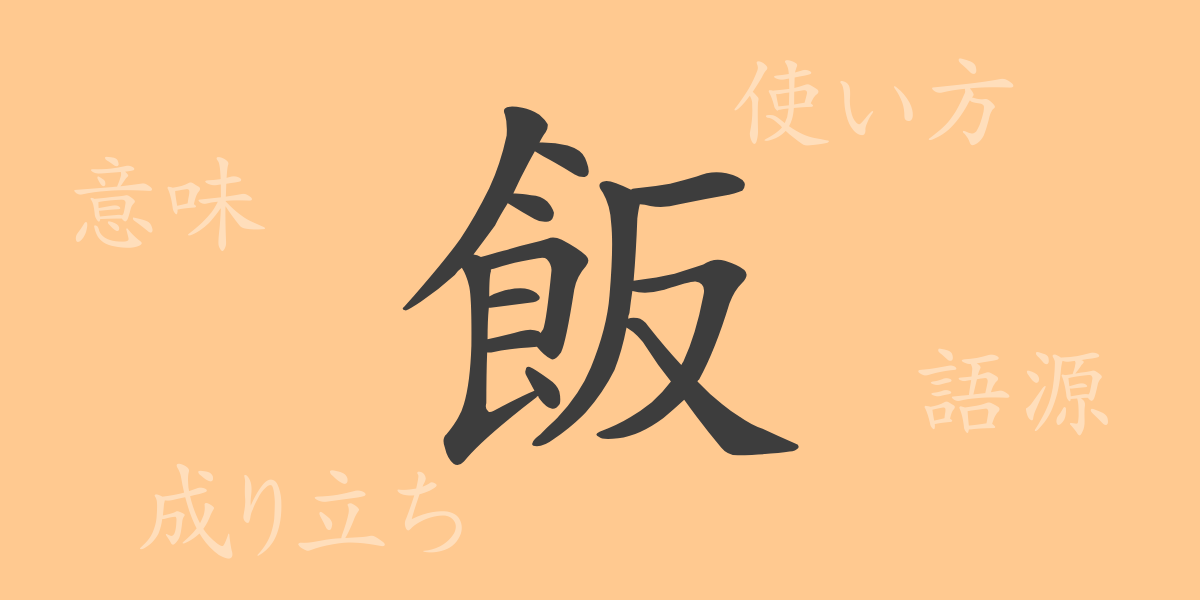“`html
In Japanese food culture, the central presence of “飯” (meshi) is undeniable. This single character does not merely refer to a meal but is deeply rooted in the lives and hearts of the Japanese people. In this article, we will delve into the history, meaning, and usage of the commonly used kanji “飯” (meshi) in the Japanese language. From its etymology to idioms and proverbs, let’s explore the rich world that this single character encompasses.
The Origin (Etymology) of 飯 (meshi)
The character “飯” (meshi) has its origins in ancient China. It is believed to be a combination of “米” (rice) and “火” (fire), symbolizing “rice cooked with fire,” or simply “cooked rice.” In Japan, where rice has long been valued as the centerpiece of meals, “飯” (meshi) has become an indispensable kanji in daily life.
The Meaning and Usage of 飯 (meshi)
The primary meaning of “飯” (meshi) is “cooked rice.” However, it is also used to refer to meals in general. Additionally, in slang, it can mean “to provide a meal” as in “飯を食わせる” (meshi wo kuwaeru), or “means of livelihood” as in “飯の種” (meshi no tane).
The Reading, Stroke Count, and Radical of 飯 (meshi)
The kanji “飯” (meshi) has various readings in Japanese.
- Readings: On’yomi is “ハン” (han), and Kun’yomi is “めし” (meshi)
- Stroke count: 12 strokes
- Radical: 食部 (shokubu – food radical)
Idioms, Proverbs, and Words Using 飯 (meshi)
There are numerous idioms, proverbs, and words in Japanese that include “飯” (meshi). For instance, “飯盒” (hangou) is a tool used for cooking rice outdoors, and “飯縄” (meshinawa) is considered an unlucky proverb. Additionally, “飯の種” (meshi no tane) refers to the means or capital for making a living, highlighting the importance of work.
Conclusion on 飯 (meshi)
The commonly used kanji “飯” (meshi) is not only deeply connected to Japanese eating habits but also appears in various expressions and proverbs, making it an important character. Understanding its etymology and meaning leads to a deeper comprehension of the Japanese language. The character “飯” (meshi), used in daily meals, carries a cultural significance beyond just being an ingredient. It is our role to cherish the rich meanings of “飯” (meshi) and pass on Japan’s food culture to future generations.
“`

























